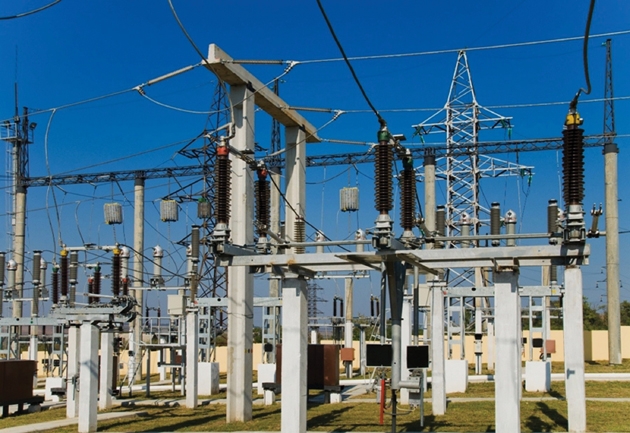Published
6 years agoon

The Africa Centre for Energy and Environmental Sustainability (ACEES) has called on the Electricity Company of Ghana (ECG) to publish load reduction schedules prior to prolonged power interruption to help power consumers plan accordingly.
The call comes on the back of recent power outages experienced in the country.
In a statement ACEES said its checks has revealed that most thermal plants running on Light Crude Oils (LCO) has been shut down since 2019 due to financial constraints.
In view of this, ACEES is recommending the following to the key stakeholders within the power industry:
1. Advance notice to consumers to help plan around outages to mitigate impacts.
2. Publish timetables especially in situations where intermittent outages last for long.
3. Consider the energy transition agenda by shifting reliance from thermal sources to renewables
4. Properly design power system networks factoring consideration contingency needs.
5. Sensitize citizens to safeguard electrical installations and equipment in their domains.
6. Upgrade electric meters to standard accuracy. Smart card technology should be adopted. Smart metering would enable utilities to monitor usage and detect tampering and
theft more quickly.
7. Embark on good preventive maintenance programs for periodic inspection of electrical infrastructural facilities. They should be replaced if need be.
8. Thermal limits of transmission and distribution lines should be closely monitored to ensure that they are never exceeded. Distribution transformers and all electrical equipment and infrastructure must be protected against overloading.
9. Regulators (PURC) intervention in ensuring that consumers are protected as per their mandate
Please read full statement below:
PUBLISH LOAD SHEDDING SCHEDULE PRIOR TO PROLONGED POWER INTERRUPTION
Accra, March 4, 2020: The Africa Centre for Energy and Environmental Sustainability (ACEES) calls on the Electricity Company of Ghana (ECG) to publish load reduction schedules prior to prolonged power interruption to help power consumers plan accordingly.
Unreliable power supply is one of the key problems faced by the country. Based on this, Ghana was ranked 118th out 190 economies across the globe in the “ 2019 Ease of Doing Business” report, of which getting reliable power supply is one of the parameters under electricity. Though some efforts and gains have been realized in ensuring increased generation to meet demand after the power crisis a decade ago, these efforts have not yielded desired results in terms of reliable power supply to customers. This is particularly important when the electricity access rate in Ghana is over 83% and one of the highest in Sub-Saharan Africa.
The Generation, Transmission and Distribution Companies in the electricity supply chain have had many struggles with the crippling infrastructure of the sector. As a result, our power system suffers from power factor challenges, transformer overloads/underloads leading to higher core and resistance losses. Both technical and non-technical losses in Ghana account for about 24% of sales which put stress on the loyal and honest customers.
Until such a time that line losses and other technical related issues are substantially reduced and renewable generation on solar and wind is increased significantly to augment supply and cater for the increasing demand, Utility Companies should always expect load shedding at one point or the other and as such the need for planning a maintenance schedule and a policy for load shedding to provide respite to the citizens and facilitate industrial and commercial growth.
Recent Power Outages
The recent power outages last month has left consumers in very devastating situations. Businesses and household consumers of power suffered this situation due to the lack of prior notification by key stakeholders to consumers to help them plan around their daily activities.
According to the communication from the ministry responsible for energy, a total of about 300 to 400MW of power was lost resulting in frequent outages. Notable among the reasons given by the Deputy Minister for energy were:
a) Ongoing cleaning and maintenance work being carried out by WAPCo which has stopped the flow of gas supply from the east to various power plants powered by natural gas
b) Loss of 100MW generator from the Kpone thermal plant
c) Loss of the Takoradi thermal plant (TICO)
However, our checks, reveal that most thermal plants running on Light Crude Oils (LCO) has been shut down since 2019 due to financial constraints.
In view of this, the Africa Center for Energy and Environmental Sustainability (ACEES) wish to recommend the following to the key stakeholders within the power industry:
1. Advance notice to consumers to help plan around outages to mitigate impacts.
2. Publish timetables especially in situations where intermittent outages last for long.
3. Consider the energy transition agenda by shifting reliance from thermal sources to renewables
4. Properly design power system networks factoring consideration contingency needs.
5. Sensitize citizens to safeguard electrical installations and equipment in their domains.
6. Upgrade electric meters to standard accuracy. Smart card technology should be adopted. Smart metering would enable utilities to monitor usage and detect tampering and theft more quickly.
7. Embark on good preventive maintenance programs for periodic inspection of electrical infrastructural facilities. They should be replaced if need be.
8. Thermal limits of transmission and distribution lines should be closely monitored to ensure that they are never exceeded. Distribution transformers and all electrical equipment and infrastructure must be protected against overloading.
9. Regulators (PURC) intervention in ensuring that consumers are protected as per their mandate
Source: classfmonline.com
